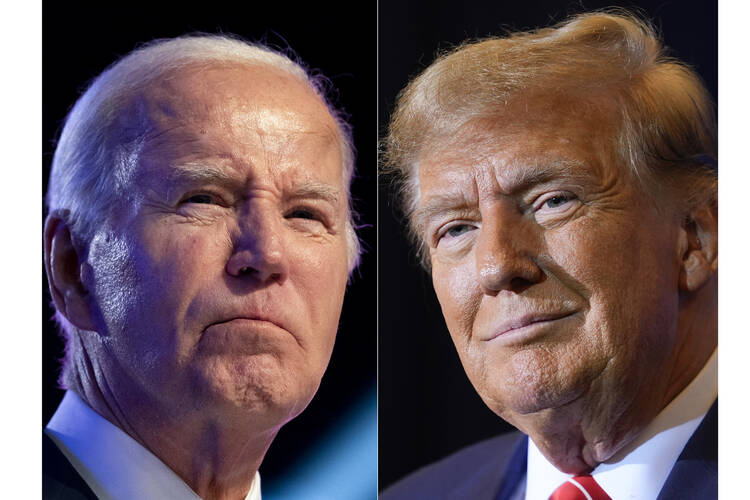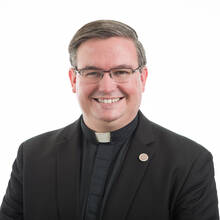Is anything truly inevitable in politics? If not, why is that such a popular word right now?
After the withdrawal of Florida Gov. Ron DeSantis and the defeat of former South Carolina Gov. Nikki Haley in New Hampshire, a common narrative about the 2024 Republican presidential contest is that the nomination of Donald J. Trump was always inevitable. Mr. DeSantis said as much in his withdrawal speech on Jan. 21, as The New York Times reported:
“I am today suspending my campaign,” Mr. DeSantis said. “Trump is superior to the current incumbent, Joe Biden. That is clear. I signed a pledge to support the Republican nominee, and I will honor that pledge. He has my endorsement because we can’t go back to the old Republican guard of yesteryear.”
Despite the Times’s commentary, this is not a “perfunctory” statement. In arguing that G.O.P. voters again must choose between Mr. Trump and the “old Republican guard,” Mr. DeSantis was admitting his failure to offer a third way, and he elevated a trope he had once hoped to bin: Mr. Trump’s nomination was inevitable.
There is a great deal here for political commentators to chew over. But for Christians, a few points are worth clarifying.
Hyperbole’s victims
Words like inevitable and invincible get thrown around a great deal in politics. But what are the costs of this language? Does it signal to increasingly discouraged and cynical voters that they have no meaningful impact on politics?
This question has special importance for Christians, because Christians have a vested interest in free will. Indeed, the act of faith depends upon it. The Gospel shows us again and again that God does not coerce cooperation; he wants it freely from humans.
Anyone claiming our support because his rise to power is “inevitable,” in other words, is perilously close to insulting our free will, and setting himself up as a false god who will “save” us at the expense of our agency. Viewed in this light, the language of “inevitability” and “invincibility” is not only wrong, but profoundly dangerous.
Anyone claiming our support because his rise to power is “inevitable” is perilously close to insulting our free will.
Perhaps such extreme language is particularly common in a democracy. Democracy gives voters choices, but politicians can use necessity, inevitability, apocalypse and related concepts to structure and limit voter’s perceived choice. In 2024, for example, many parties have a vested interest in presenting Mr. Trump’s nomination as inevitable: Mr. Trump and his supporters who seek to scare off other candidates; many on the left who want to energize resistance to the G.O.P.; and some in the media who want to sensationalize politics to attract viewers and readers.
But, again, what are the effects of repeating that message?
A politician can choose to remind voters that they have a choice, and that they should choose him or her. Or they can choose to argue that voters have no choice, thus undercutting the democratic principles of this republic.
While this may not be a new problem, it is worth noting that politicians in the past have chosen instead to underline voters’ free will, as with John F. Kennedy when accepting the Democratic nomination in 1960: “The Democratic party has once again placed its confidence in the American people, and in their ability to render a free and fair judgment and in my ability.”
As in so many other parts of society, Catholics have a special role to play here. Reason tells us that free will is important, but in a political culture that continually denigrates it, the Gospel is a reminder of its value.
The false gods of campaign season
The language of inevitability is about structuring voter choice. If a political candidate, whether Mr. Biden or Mr. Trump or anyone else, is the great savior of the people, then the people are powerless without him. If Mr. Trump’s nomination is inevitable, then the G.O.P. never had the power to stop him. And by a certain logic in parts of the Biden camp, the Democrats are powerless to choose anyone but Joe Biden.
In all of these cases, passivity is presented as a brute fact. Again, this is not to deny that wide-scale factors shape political life in a way that ordinary citizens have very little direct control over, nor that life in mass society presents special challenges for democracy.
But when U.S. politics responds to widespread feelings of passivity by elevating it as a central campaign tactic, then one begins to suspect that the language of “inevitability” is a strategy more than a description of facts. Someone is actually selling passivity.
One begins to suspect that the language of “inevitability” is a strategy more than a description of facts. Someone is actually selling passivity.
And when political campaigns offer their candidates as the one person who can solve all of our problems or hold off the apocalypse, then one begins to suspect that this salvation narrative is also a cheap electoral ploy, one that toys with secularized Christian tropes to sell apocalypse.
The Gospel assumes a dialogue between God’s initiative and human cooperation, whereas too often in politics passivity is proclaimed as a virtue for citizens. This leaves the initiative to politicians, who are somewhat less than divine.
Do the stories we tell ourselves about U.S. political life encourage us to cooperate with God? To be his hands and feet on earth? Or do they encourage us to seek a temporal savior to save us from our earthly enemies?
For that is the ultimate limit of the nature of politics. If human life is a kind of cooperation with God’s initiative, then we must not only cultivate cooperation with grace, but recognize that grace is a gift from God, not from princes.
This is part of a series of columns by Bill McCormick, S.J., on the 2024 election. Also read: “How to prepare for next year’s elections? Here are 3 tips to keep you spiritually sane” and “Is politics bad? It depends on your view of human nature.”








